International Knowledge Building Design Studio (KBDS) June 2023
Introduction
The 7th cycle of Knowledge Building Design Studio (KBDS), themed “Data Science and Sustainability”, was held on 22 - 24 June 2023. The aim of this KBDS was to facilitate student groups to use data science to investigate real-world problems relevant to Sustainability. It was the first full face-to-face event since the outbreak of the COVID pandemic. Furthermore, for the first time, an international KBDS was held, whereby 27 Hong Kong students and their 3 teachers flew over to Singapore for the event, which enabled students to bring diverse funds of knowledge to the event and engage in collaborative Knowledge Building with international peers. Along with 16 students from Broadrick Secondary School and Unity Secondary School, the students formed seven groups based on their common inquiry interests. The teams worked together with researchers and various field experts to research and utilize data to answer their negotiated investigative questions. This KBDS integrated multiple technology platforms like ZOOM to support international video conferencing; Knowledge Forum, an online discussion tool for knowledge building, to support progressive discourse; and Jeffreys's Amazing Statistics Program (JASP) and Common Online Data Analysis Platform (CODAP) for data analysis and visualization.
Group photo of all who took part in KBDS June 2023
Video montage of KBDS June 2023
Main Design of the KBDS
The KBDS was driven by students’ authentic ideas and real problems inspired by videos and invited guest talks. Firstly, two carefully curated videos about sustainability relevant to Singapore and Hong Kong were played. Secondly, we invited one data scientist and one sustainability expert. Each student was provided with a piece of post-it to write down the topic that they are interested in. Based on their common interests, the students were grouped into seven groups for a deeper investigation. A correspondent group structure was created in the online KF platform to support groups’ data-inherent Knowledge Building.
To help students understand how data can be collected and analyzed, we designed a simple game to collect data, which was then used to teach the concept of linear regression.
Tennis ball game to learn about regression
Small Group Sessions
Besides the segments happening at the community level, some segments occurred at the group level, for more focused idea-sharing.
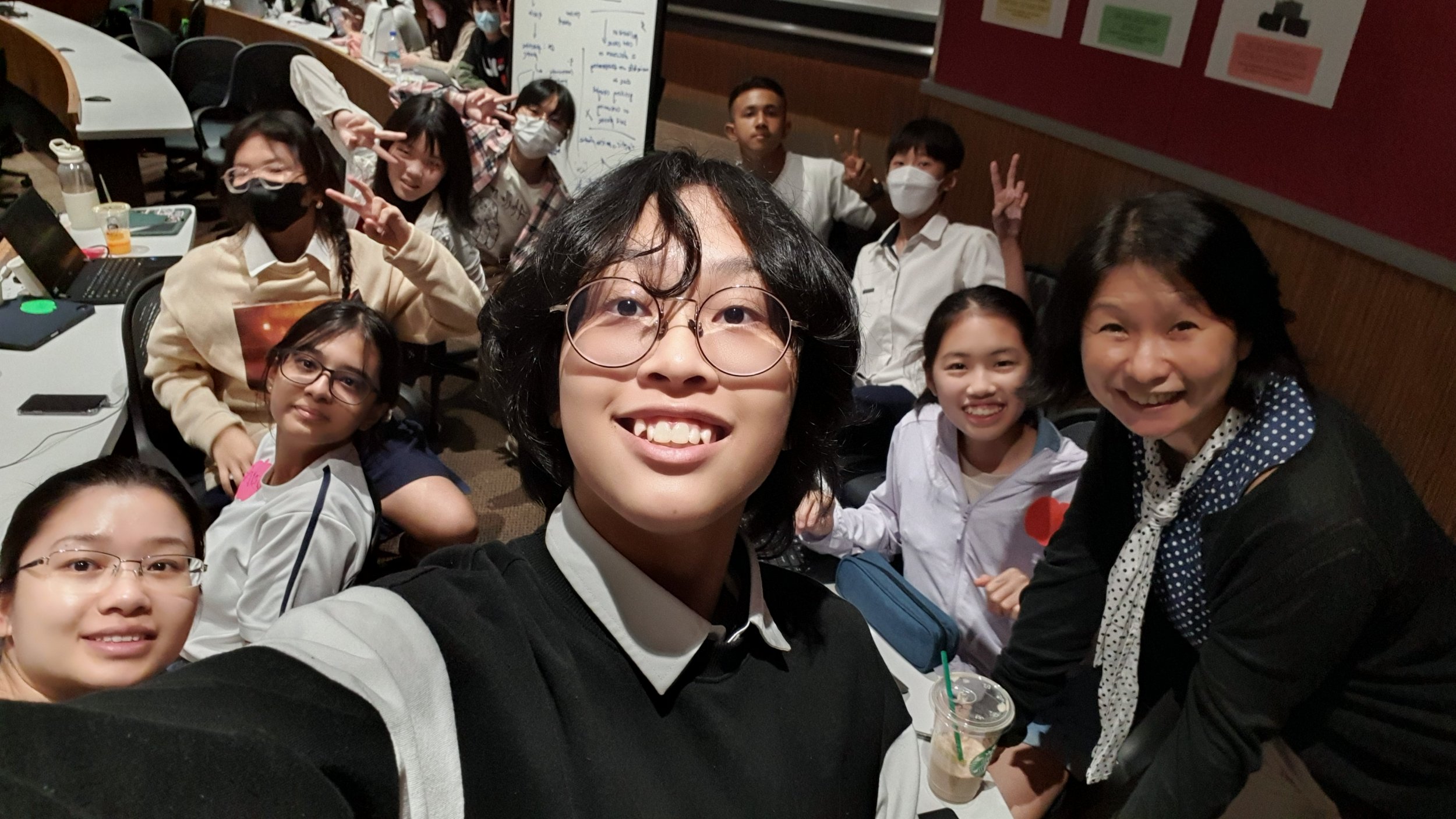
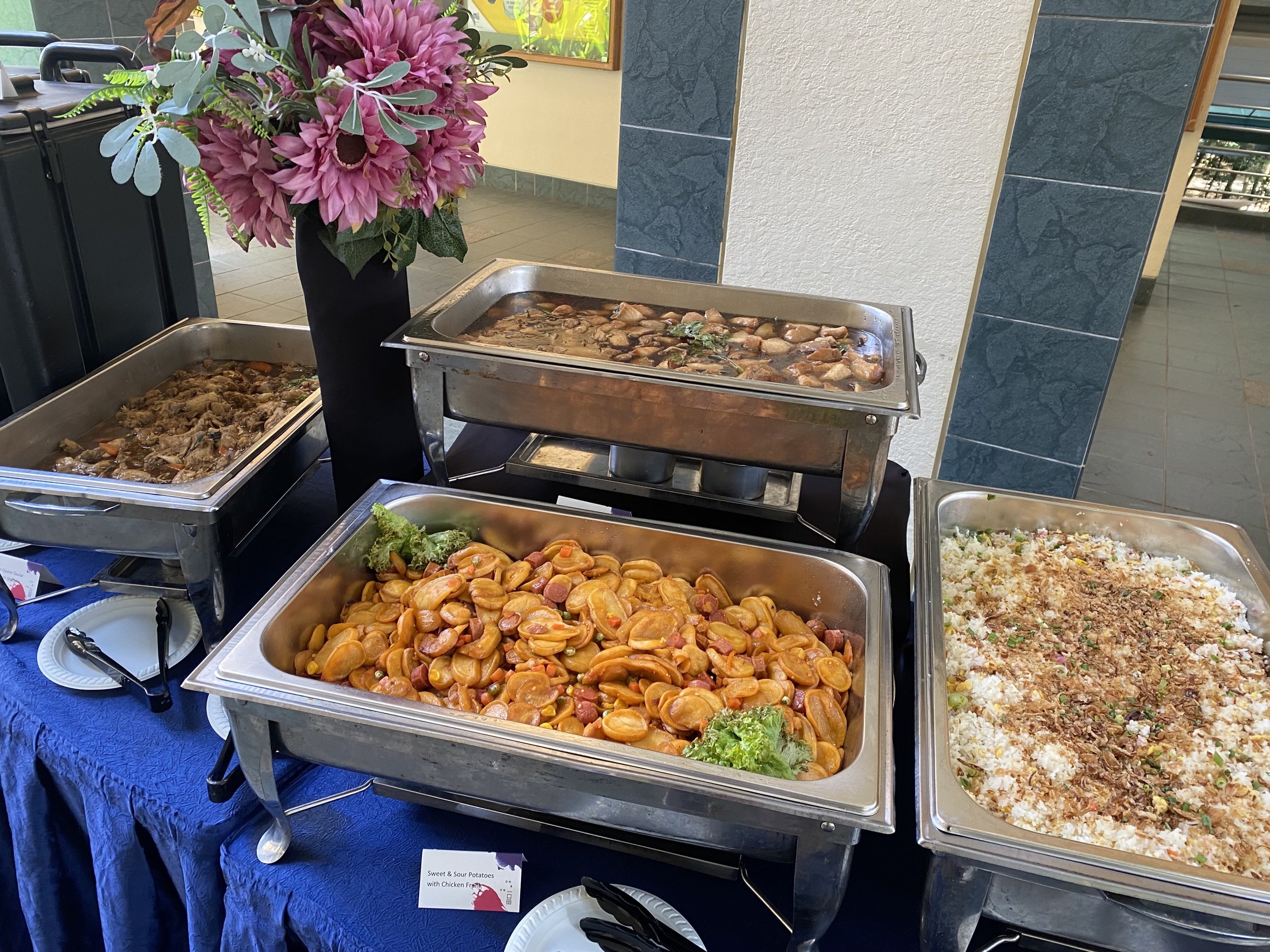
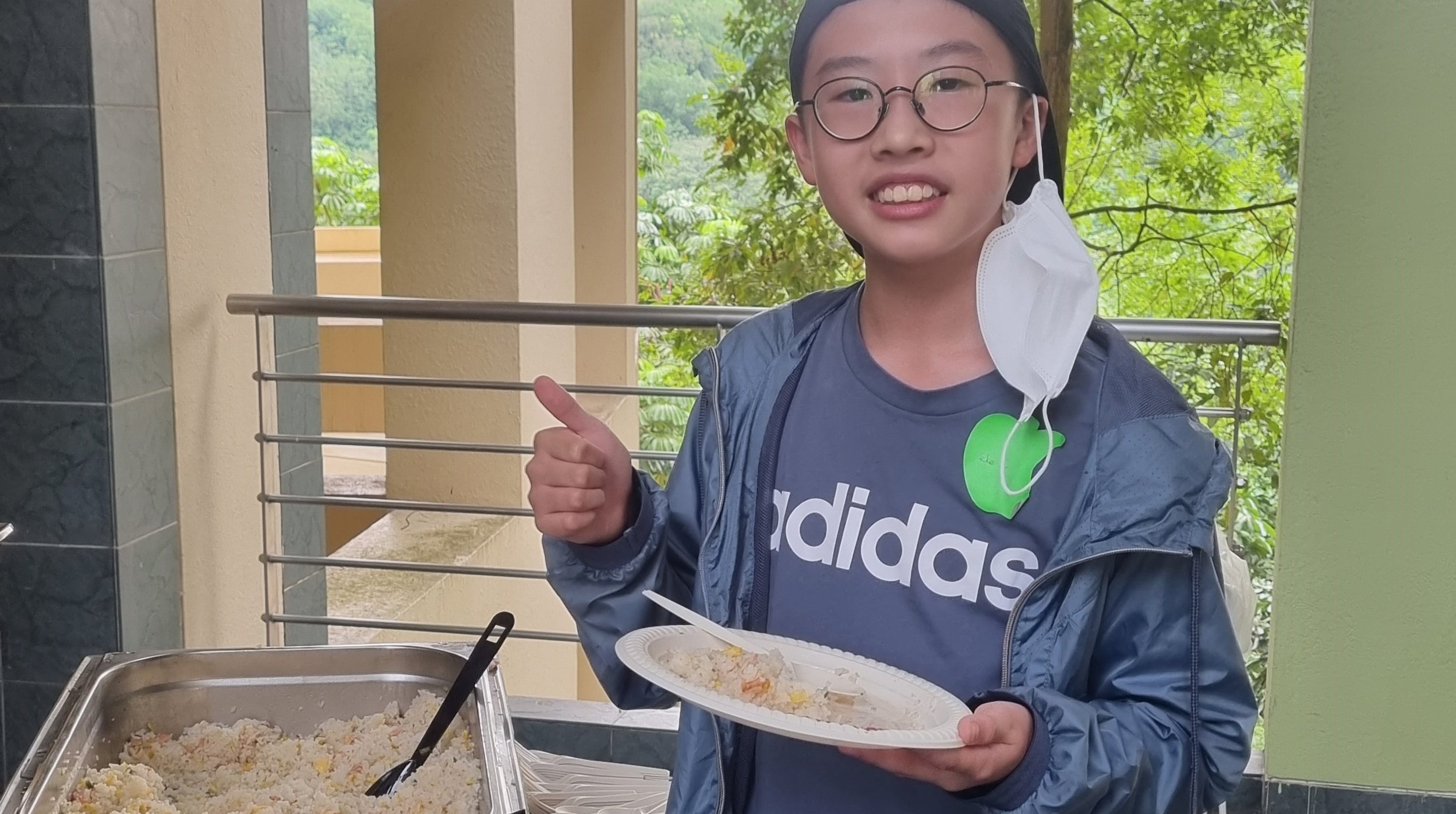
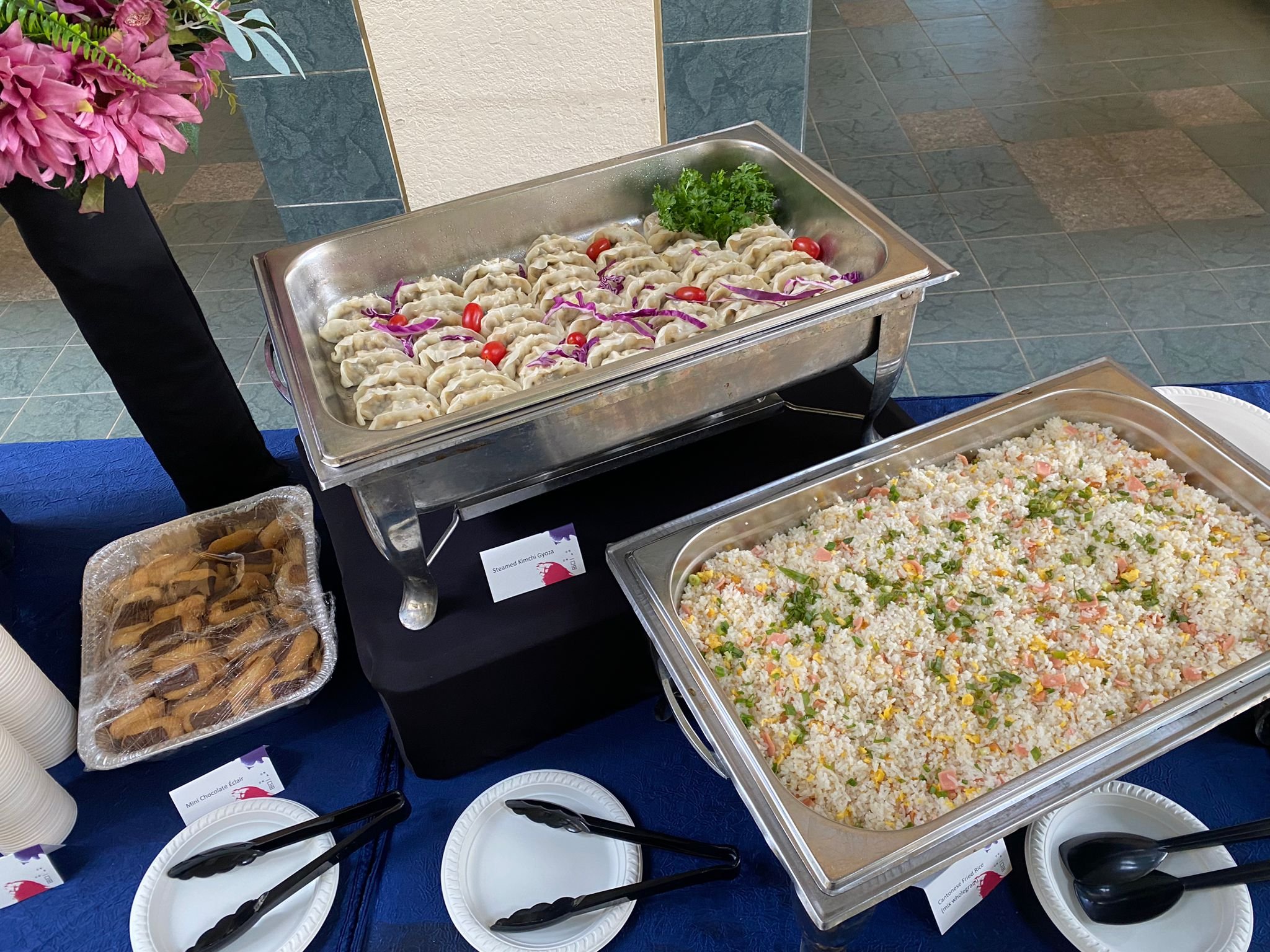
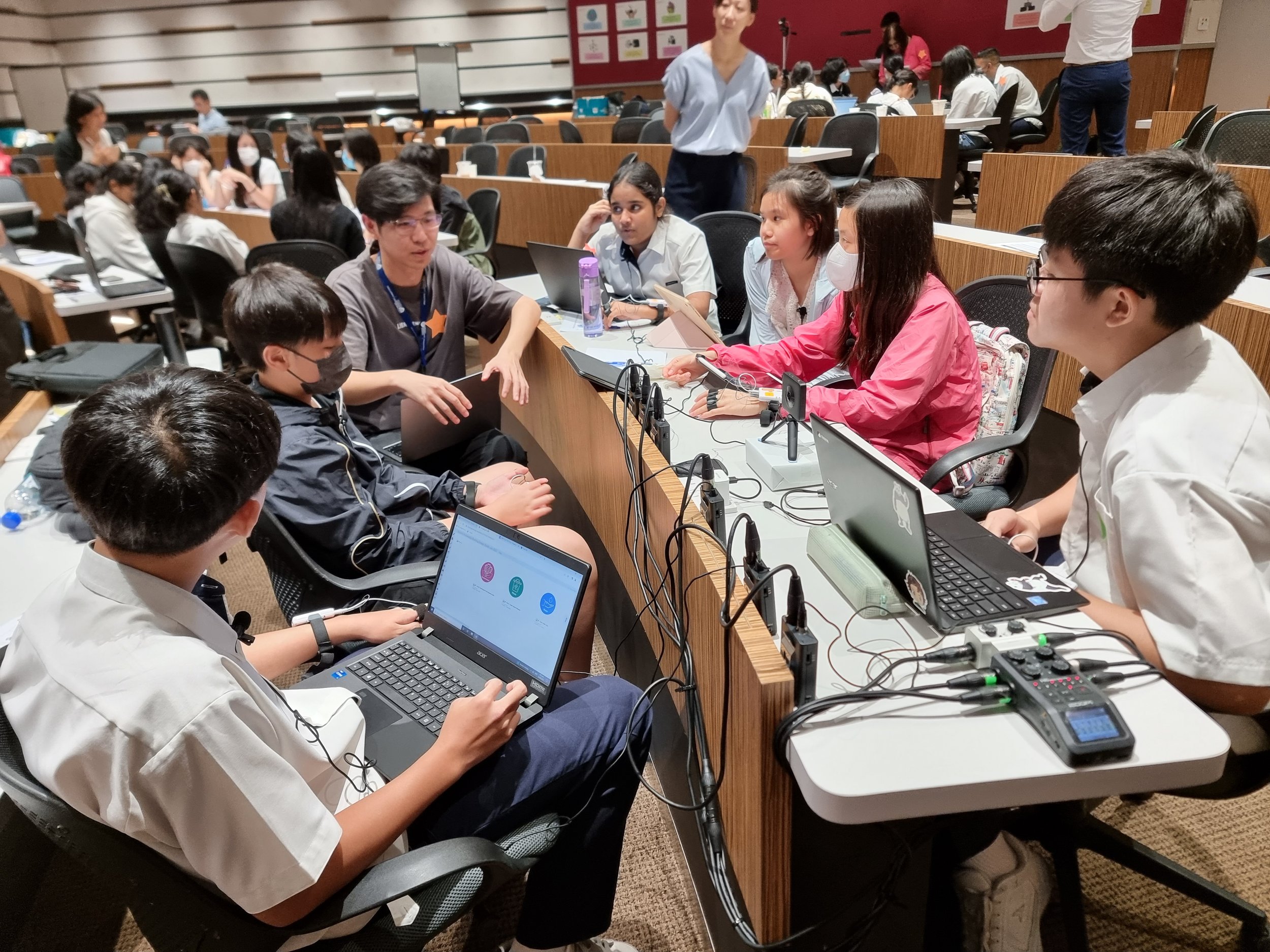
Co-create A Journey of Thinking to Synthesize the Learning Progress
Students wrote and shared in their group views, pursuing an in-depth understanding of their inquiry. Students reviewed the diverse idea contributions and synthesized their shared advances through co-authoring a reflection note - Journey of thinking (JOT). JOT facilitated students in synthesizing ideas and rising above in KF with scaffolds. Students created one group JOT to reflect on how their ideas have progressed. Students were also given time to build on various ideas, respond to their peers’ comments, or write about what they have learnt.
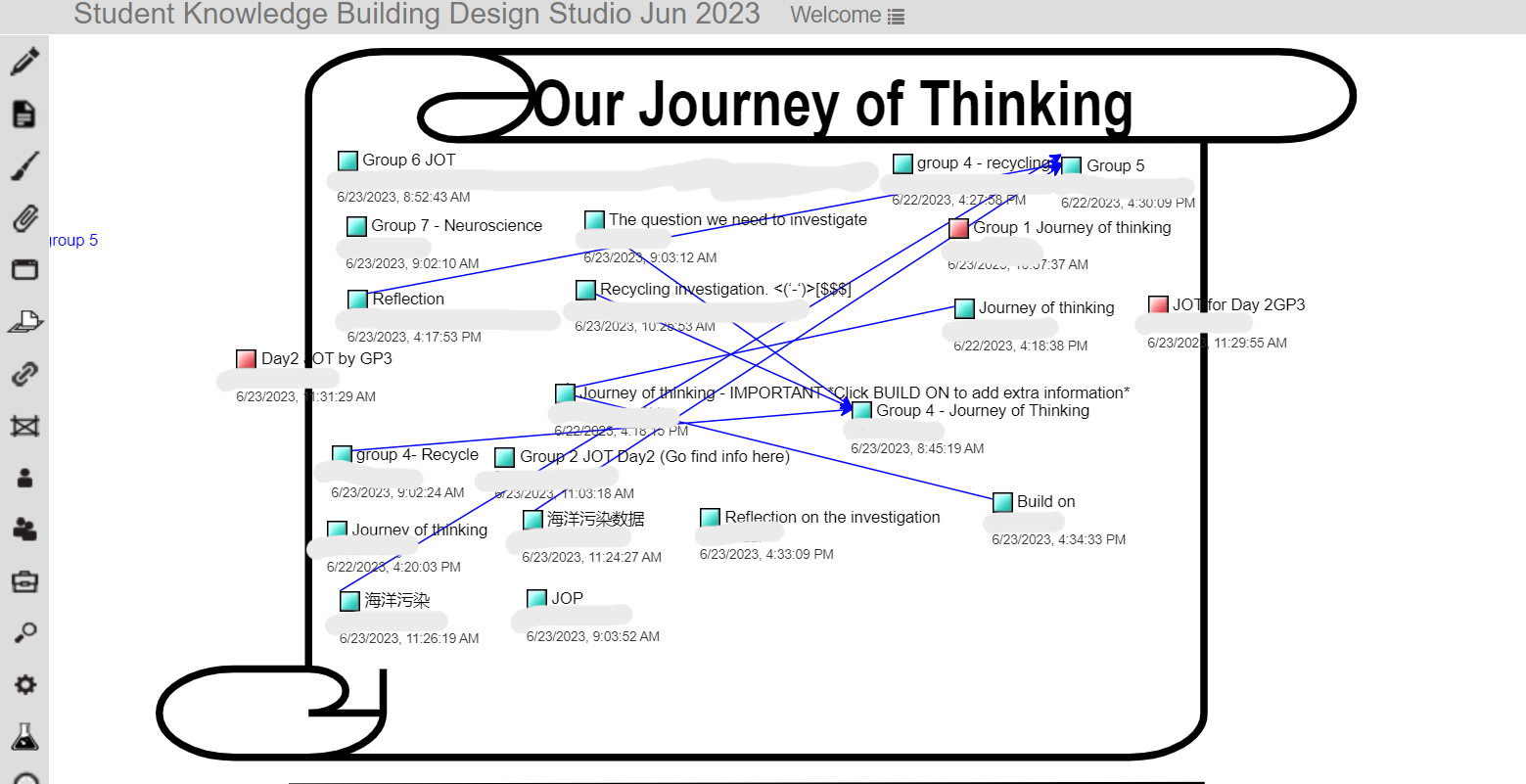
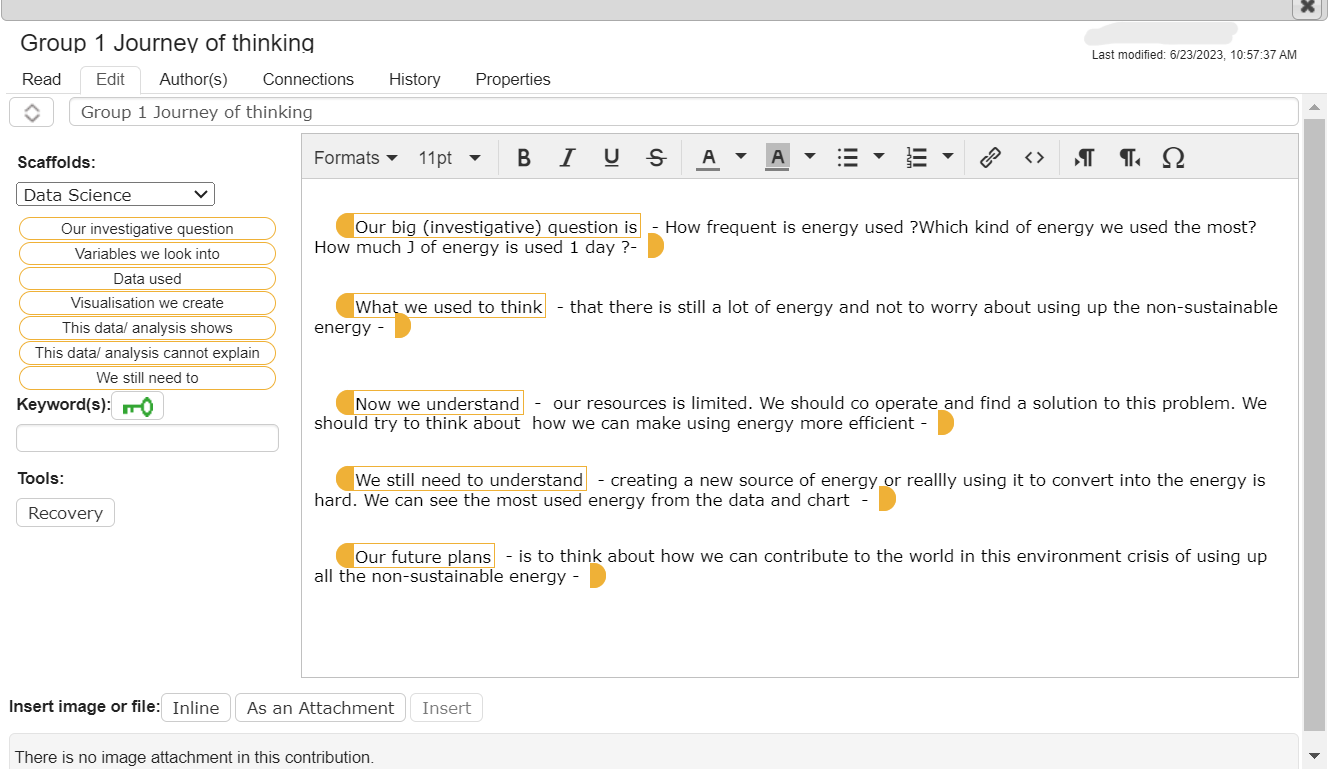
Experts of Data Science and Research in our Community
Several experts were invited to share their expertise regarding Data Science and Sustainability. The expert sharing sessions had helped students to learn more about what they can do with data and how data analysis can be used to solve real-world sustainability problems.
Expert Sharing by Ms Jeanne McClure
Ms Jeanne McClure, a Ph.D. Student in Learning Analytics from the North Carolina State University in the States, kickstarted by setting the stage– that Data Science is everywhere and helps us understand the world. Jeanne is involved in many data science education efforts in both K-12 and higher education. She shared her insights about data science and invited students to engage in multiple interactive online interactions.
Expert Sharing by Dr Stephen Tay
The sharing continued with Dr Stephen Tay, who is from the National University of Singapore (NUS). Dr. Stephen Tay is currently an Associate Professor in the Department of the Built Environment and an Adjunct Researcher at the Solar Energy Research Institute of Singapore (SERIS). During his sharing, he shared about sustainability issues, efforts, and their relevance to the world.
On day 2, there were three data scientists who concurrently went around to various groups for in-depth consultation sessions. The three data science experts were—Assistant Professor Farhan Ali, Dr Katherine Guangji Yuan, and Dr Lee Vwen Yen Alwyn. They were invited to give students feedback on refining their investigative questions and data analysis.
Dr Farhan Ali is an Assistant Professor in the Learning Sciences and Assessment Academic Group, National Institute of Education.
Dr Katherine Guangji Yuan is a Research Scientist in Office of Education Research, National Institute of Education.
Dr Lee Vwen Yen Alwyn is a Research Scientist in Office of Education Research, National Institute of Education.
Student Presentations
In their groups, students created an artefact showcasing their investigative question, explaining why the question is investigative and necessary, and detailed their data science inquiry process.
Students creating a video to showcase their proposal on electric cars


Meta Talk
During the Meta Talk session, students reflected on big questions, like — “How do the results inform future actions relevant to Sustainability?”
Sharing of thoughts with the community
Field Trip
On day 3 of KBDS, students went on a field trip to Marina Barrage and Science Centre. It was optional for Singaporean students.
Group Photo outside the Sustainable Singapore Gallery
At Marina Barrage, students learnt about the sustainability issues that Singapore is currently facing, as well as how the government tackles them.
Visit to Science Centre—The Tinkering Studio
Following the Marina Barrage tour, students visited the Singapore Science Centre—the Tinkering Studio. The Tinkering Studio is a hands-on activity space where students are encouraged to fiddle around and come up with new ideas. Students were given the autonomy to generate solutions to challenges posted. The booths include—playing with the marble machine, making a mini parachute, making a LED pixel art cube, etc. The highlight of the Tinkering Studio was the marble machine wall. Students explored everyday objects and constructed a maze-like passage for the marble, resembling a pinball machine game.
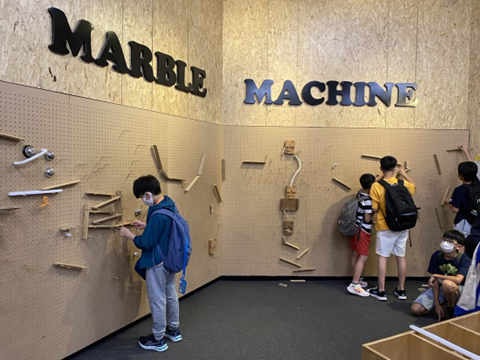
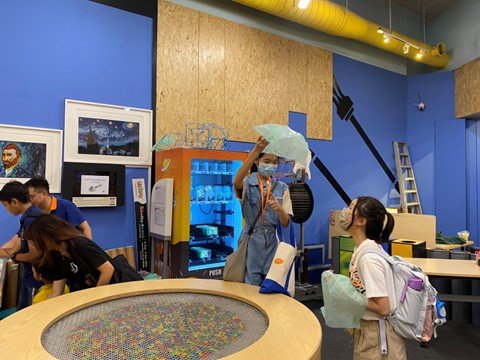
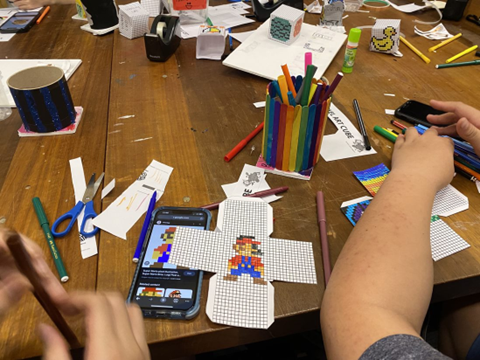
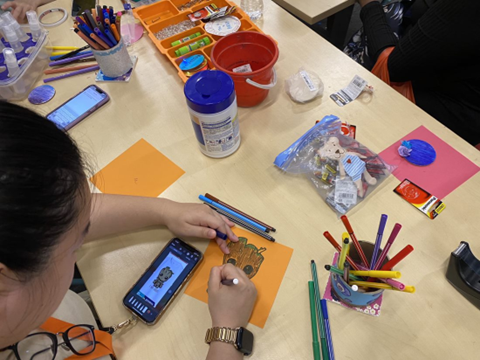
After exploring the hands-on activities, students were allocated free-and-easy time to explore the different exhibitions.
Moving Forward
Through this run of KBDS, students had built knowledge and continued to show potential in improving ideas related to sustainability in the community. This KBDS also included an exciting field trip component for the first time.
The next run of KBDS will be from 16 to 17 October 2023. We will be opening up KBDS to primary school students. Please look out for our next announcement on our website.











